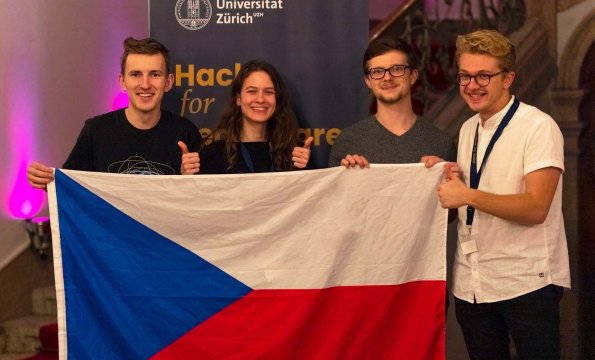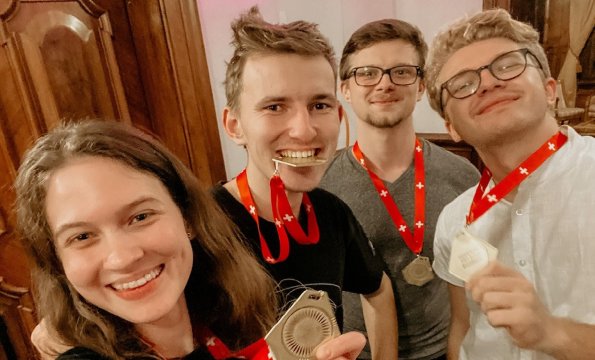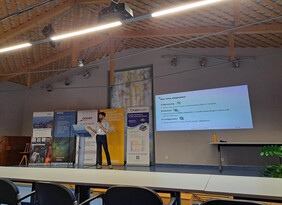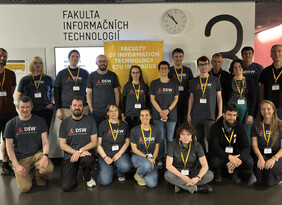Médecins Sans Frontières has been solving insulin administration in developing countries for several years. The Czech team has managed to find a solution by designing a universal system that can accommodate any insulin cartridge and needle through the use of 3D printing. The pen is also easily recyclable. The winning team attributes its success in the competition to the diverse skills of its individual members, who were students Ľuboš Repka (FIT CTU and Second Faculty of Medicine CU), Natálie Bodnárová (FA CTU), Vojtěch Petrásek (FEL CTU) and Vasil Kostin (Third Faculty of Medicine CU). The competition was from 26 to 28 November 2021.
"It often happens that the presented problems are difficult to understand by the engineer from a medical point of view and on the contrary. Thus, on many projects, apart from the work itself, I serve as a link between these two worlds," adds Ľuboš Repka, a student of FIT CTU and Second Faculty of Medicine CU.
According to the International Diabetes Federation, more than 300 million of the world's 463 million diabetics live in developing countries and the number is expected to increase by 100 million by 2045.
Ľuboš Repka and Vasil Kostin already succeeded with the Smart Trial app and before the Swiss hackathon, they won third place at the European Health Hackathon 2021 with NephroSense, an app that can automatically and accurately measure patients' urine output.





